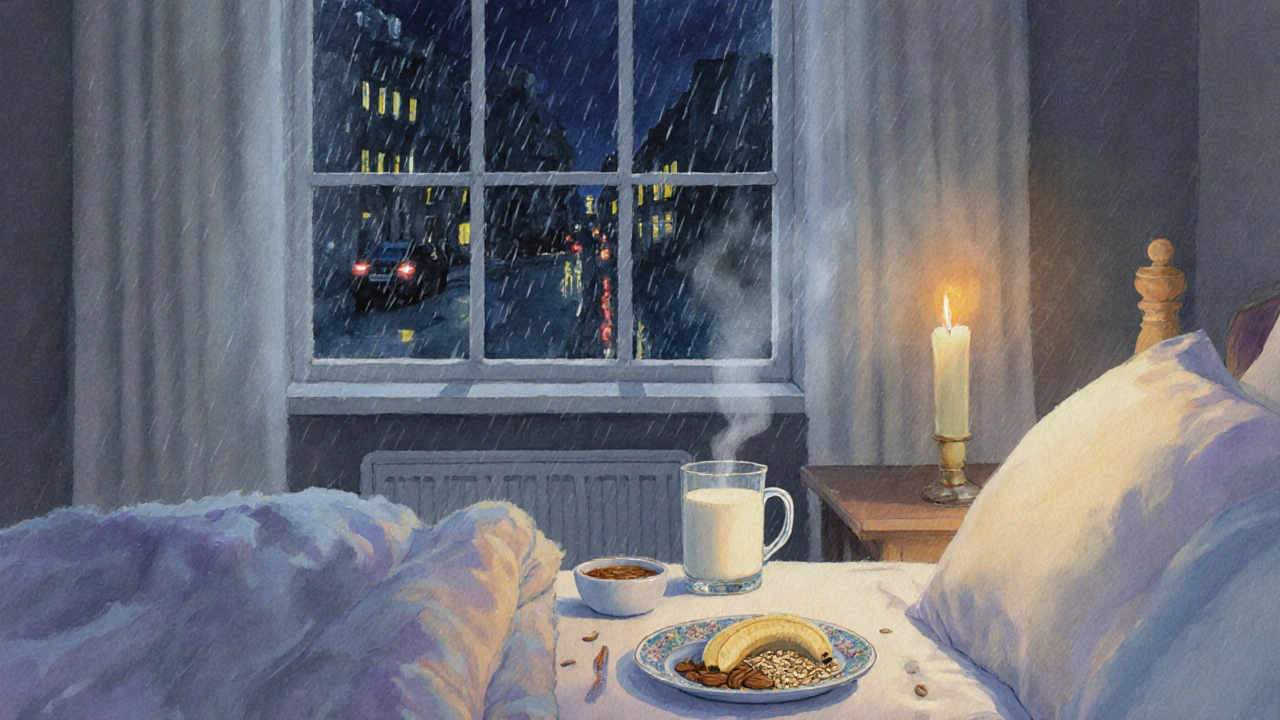Caffeine and Sleep: What Really Happens When You Sip Late?
We all love that morning cup, but hitting the cafe after lunch can feel like a gamble on your bedtime. Caffeine is a stimulant, which means it wakes up your brain and blocks the chemicals that make you sleepy. The result? You might stay awake longer, toss more, or wake up feeling groggy. Understanding how caffeine works helps you enjoy it without sacrificing quality sleep.
How Caffeine Affects Your Sleep Cycle
When you drink caffeine, it blocks adenosine, a brain chemical that builds up during the day and signals it’s time to rest. With adenosine blocked, you feel alert. At the same time, caffeine can increase cortisol, the stress hormone, which keeps your nervous system on high alert. These changes can delay the onset of deep sleep, reduce total sleep time, and fragment REM sleep – the part that helps memory and mood.
Everyone processes caffeine a bit differently. Most people have a half‑life of about 3–5 hours, meaning half the caffeine you consumed is still in your system after that time. If you drink a large coffee at 4 p.m., you could still have a noticeable amount in your blood at 10 p.m., enough to keep you from falling asleep quickly.
Practical Tips to Enjoy Caffeine Without Sabotaging Sleep
1. Watch the clock. Try to finish your last caffeinated drink at least six hours before you plan to sleep. If you aim for 10 p.m., stop caffeine by 4 p.m.
2. Choose lower‑caffeine options. Green tea, black tea, or a small espresso have less caffeine than a large latte. Even a half‑caffeinated coffee can give you the flavor without the punch.
3. Mind your other sources. Chocolate, soda, and some medications contain caffeine. Add them up to see your total daily intake.
4. Stay hydrated. Water helps your body flush caffeine faster. A glass of water after your coffee can also signal a mental break.
5. Experiment with timing. Some people can handle a late cup if they’re naturally night owls. Track how you feel after different drinking times and adjust accordingly.
Bonus tip: If you need a pick‑me‑up late in the day, try a short walk, bright light exposure, or a splash of cold water instead of caffeine. These tricks boost alertness without the lingering sleep disruption.
Understanding the link between caffeine and sleep lets you make smarter choices. You don’t have to quit coffee completely – just be mindful of when and how much you drink. By timing your caffeine right, you can keep the energy boost and still enjoy a restful night. Sweet dreams!

How a Healthy Diet Boosts Your Sleep Quality
Discover how the foods you eat shape your sleep. Learn which nutrients, meal timing tricks, and dietary habits can turn restless nights into deep, restorative rest.
Read More